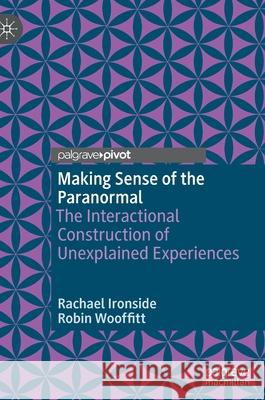Making Sense of the Paranormal: The Interactional Construction of Unexplained Experiences » książka
topmenu
Making Sense of the Paranormal: The Interactional Construction of Unexplained Experiences
ISBN-13: 9783030884062 / Angielski / Twarda / 2022 / 154 str.
Making Sense of the Paranormal: The Interactional Construction of Unexplained Experiences
ISBN-13: 9783030884062 / Angielski / Twarda / 2022 / 154 str.
cena 261,02
(netto: 248,59 VAT: 5%)
Najniższa cena z 30 dni: 250,57
(netto: 248,59 VAT: 5%)
Najniższa cena z 30 dni: 250,57
Termin realizacji zamówienia:
ok. 22 dni roboczych
Dostawa w 2026 r.
ok. 22 dni roboczych
Dostawa w 2026 r.
Darmowa dostawa!
Kategorie:
Kategorie BISAC:
Wydawca:
Springer Nature Switzerland AG
Język:
Angielski
ISBN-13:
9783030884062
Rok wydania:
2022
Ilość stron:
154
Waga:
0.33 kg
Wymiary:
21.01 x 14.81 x 1.12
Oprawa:
Twarda
Wolumenów:
01
Dodatkowe informacje:
Wydanie ilustrowane











